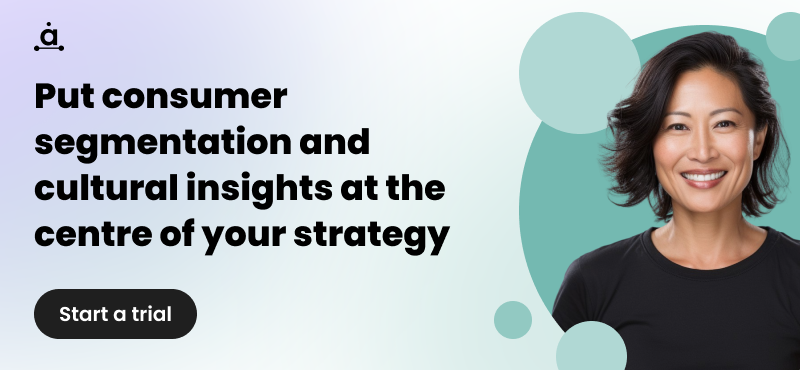The New Social Currency: Research from social listening to audience analysis
I recently read a white paper published by Pulsar - an Audiense partner - about the penetration of crypto as a mainstream conversation topic. The analysis was developed based on the social conversation taking place around crypto, using the Pulsar and Audiense platforms together.
According to The New Social Currency: A report on the mainstream rise of cryptocurrency through the lens of social data, it seems that cryptocurrency is now a mainstream conversation topic. I spoke to Marc Geffen, Research Director at Pulsar and author of the research, who said:
Our crypto analysis was born out of the hypothesis that the mainstream was starting to take interest in cryptocurrency as early as September 2017, so this was an audience-focused research project from the outset. We knew there were high levels of social conversation around crypto, which we could analyze on many levels, but that analysis alone would not prove exactly who was behind the buzz.
The evolution of the consumer research takes us beyond social listening and the basic analysis of these social data. Traditionally, the results obtained from social listening covers what was said around the topic, brand, the sentiment and the volume of that conversation. Now, with the analysis of the audiences behind the conversation - identifying interests, influencers and other characteristics of these users - it is possible to better understand these individuals, segment them in different audiences, and target them in a personalized way.
Analyzing recent social media conversation about cryptocurrencies and audience data we can answer questions such as:
- What are people saying about the topic/brand?
- Who are these people?
- How do they feel about the topic/brand?
- Why are they talking about cryptocurrency and what do they know about it?
The research showed that almost half of the people who participated in the conversation were basically asking ‘what are cryptocurrencies?’
Through active listening, we could collect data on when the conversation was taking place, the most used terms and keywords, the volume of the conversation. This allows us to give context to the conversation, which provides a powerful vision on the evolution of cryptocurrencies towards a mainstream conversation.
But… Who is participating in this conversation and who is driving it? According to Marc:
On many social data research projects we aim to isolate the audience in some way, examining demographic- and affinity-patterns across networks of actual people - looking beyond what they are saying about a given topic. Doing this is challenging, certainly if you are to attempt it manually, with limited samples, or using a listening tool that's meant for top-line volumetrics. But Audiense simplifies much of this process, visualizing the user network and providing many ways-in to understand the people who are driving a certain conversation.
When analyzing a group of people, target audience or a target market, there are generally two layers: demographics and psychographics. Different from traditional market research, social media data has the capability to provide insights into demographics and psychographics, allowing us to study connections between people, at scale. Now we are closer to the sociological analysis by understanding cultural dynamics, the interest patterns, and interconnections of large audiences.
This is how Pulsar's research director explained how he developed his research to reach this level of analysis:
While our full analysis covers all crypto conversation during the period, the audience portion of the analysis aims to spotlight the type of people who actively talk about crypto considerations, their investment outlook, and emotions. We set a higher standard (using more stringent Pulsar filters) for the audience analysis in order to have high confidence that we were analyzing a dataset of people truly interested in crypto, considering signals beyond simply mentioning cryptocurrency or Bitcoin. Once those conversations were identified using Pulsar, we exported the audience metadata and fed that into Audiense, which gave us a detailed view of the audience within a matter of hours.
The report shows five main segments identified by Audiense Insights, representing 80% of the cryptocurrency social audience: Pop Culture Techies, Crypto Geeks, Millennial Investors, Iconoclasts & Founders and News Junkies. These five clusters are connected to each other and present distinctive characteristics of each: why they are attracted to cryptography, who influences their way of thinking and how important cryptography is to them in relation to their more general interests.
- Pop Culture Techies (44%): This mainstream group has a penchant for tech culture, but are generally not technology leaders themselves; they also show strong interest in celebrities and sport.
- Crypto Geeks (18%): Thought leaders, developers, and investors who self-identify as participants in the cryptocurrency space; most likely to be early adopters.
- Millennial Investors (9%): Generally quite young, these stock market amateurs and professionals see crypto as an exciting new investment frontier.
- Iconoclasts & Founders (7%): This group is comprised of many startup founders/leaders; they tend to follow outspoken entrepreneurs with a contrarian attitude.
- News Junkies (2%): The most mature segment, they are hyper-engaged around the latest news in politics and business, often following establishment media brands as well as digitally-native sources.
Although we still have much to learn about bitcoin, other cryptocurrencies and its intricacies, insights that can be extracted based on social data are the ideal framework for me to continue learning about the subject.
Do you want to learn more about the most relevant audiences for your brand? Try Audiense Insights today, completely for free, and discover everything you do not know about them.







